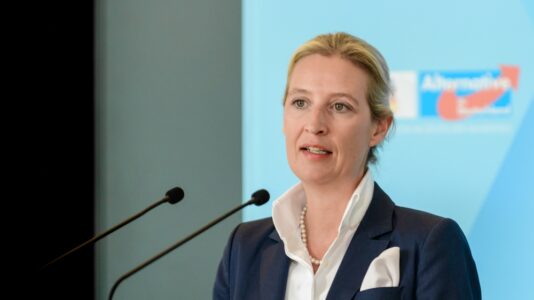Marine Le Pen’s performance in the first round of voting has her party and its supporters all smiles, as she largely performed within expectations, snagging 34 percent of the vote and coming out on top in the first round. A deeper dive into her victory reveals that while her party is now the de facto “working-class” party of France, there is much going on under the surface, with a shift in support coming from a broad swath of French society.
The data shows that over half of Le Pen’s supporters come from an “underprivileged” background, meaning she is increasingly becoming the party that represents working-class interests. Similar trends are seen across Europe, such as with the Alternative for Germany (AfD), which has recently labeled itself the “party of the working class” due to its strong support from those in blue-collar fields. However, Le Pen takes this type of support to another level.
In fact, 54 percent of National Rally’s supporters come from “disadvantaged backgrounds.” This does not necessarily mean that these people are poor, but they certainly do not have a well-off background. In fact, only 21 percent of National Rally voters were from a “well-off” background. For the far-left Popular Front, this figure was 28 percent, while 29 percent of its voters were from a “disadvantaged background.”
The stereotype that the far left has transitioned away from the working class and increasingly has its support from “elite” sectors — such as NGOs, media outlets, celebrities, environmental activists, university professors, and minorities — has some truth to it.
At the same time, National Rally has seen its support widely broaden compared to the 2022 elections. According to IPSOS, 12 percent of retiree voters backed National Rally in the first round in 2022, while this support jumped to 31 percent in the latest elction. In addition, support from women jumped from 17 percent in 2022 to 32 percent on June 30, 2024. Those under 35 went from 18 percent to 32 percent, and those in the upper-income bracket went from 15 percent to 32 percent. Even in large cities, National Rally saw tremendous gains, going from just 13 percent to 28 percent.
The executive class also saw a large shift towards National Rally, even if this is where Le Pen’s party recorded its worst scores, going from 11 percent in 2022 to 22 percent on June 30. However, the more dramatic jump is seen on a longer timeline, with National Rally quadrupling its score with this influential voting bloc compared to 2017.
The second round of elections will be held on July 7, with French President Emmanuel Macron already signaling that he will back an alliance with the far left in order to maximize the chances of blocking a National Rally majority in parliament. Although the move to align himself with the far left will turn off many of his supporters, analysts believe it is likely enough to destroy any chance the National Rally has of obtaining an absolute majority.
The Republicans (LR) has so far signaled it will refuse any alliance with the National Rally after earning 10 percent of the vote.






